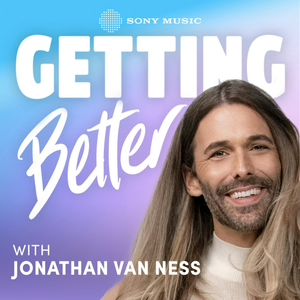
Breathing Space
08/17/23 • 10 min
Previous Episode

Unsolicited Feedback
Let me harshly deal here with people who provide you with feedback you didn’t ask for, don’t require, and can’t use. That applies to feedback which is too positive as well as too negative. We talk here about the trivialists, the hypocrites, the projectionists, and the general pains in the ass. Those who claim the only thing to do with feedback is to consider it are directing you toward the life of the ping pong balls or pickle balls being whacked back and forth. You’ll hear some of my standard replies when offered unsolicited feedback and why even my mother fell into my feedback hell. No one is erecting statues to critics in the park, even to replace those Columbus statues so ardently removed. We honor creators, not critics. Thus: Defend yourself against the time wasters and underminers and passive-aggressives who would, with a patina of supposed good intention, try to derail you. Our job is not to please everyone, not to be liked, but rather to help improve people and be respected. We do that through the honest and forthright delivery of good ideas and practices, not through tearing others down. Feedback can radically change others’ behavior, especially if they think you know more than they do. Be careful about intervening when you’re not asked. Telling someone they have lettuce in their incisors or toilet paper draped on their Pradas is, indeed, an act of good will. But telling them they shouldn’t be eating lettuce because they have an eating disorder or that their shoes are inappropriate is not helpful. Don’t believe everything you hear. In fact, try not even to hear everything.
Next Episode

The Bridge
In 1973, D. Keith Mano wrote his only science fiction book, The Bridge. It takes place in 2035, over 60 years since its original publication, but only 12 years from today. It is about radical environmentalism run amok with a “green” socialist government. The government decides to give earth back to nature, after already protecting all animal and plant life, but the fact that we destroy microbes every time we breathe is the final straw. Cars have been eliminated, people return to the fields. The world is incapable of complex technology. Obesity is social standing. There is resistance, but it is ineffective. Diseases must go untreated. Tumors are declared autonomous life forms, and protected. Everyone must commit suicide, squads are deployed to kill those who don’t and then they will commit suicide, until the earth is free of all humans. The hero, Priest, is determined not to die but to find his wife. He must cross the decayed and destroyed George Washington Bridge, hence, the book’s name. When I read the book, 50 years ago, six years out of undergraduate school, I felt it was dystopian fiction, imaginative but implausible. Just yesterday I read of a scientist in a scholarly journal who discussed the “full life of plants, including their communications and emotions.” Barry Goldwater was urgently warned in his presidential bid in 1964 NOT to say that extremism is sometimes justified. Yet he said, “Extremism in the defense of liberty is no vice.” He lost in a landslide to Lyndon B. Johnson. Exercise, religion, philanthropy, volunteerism, education, travel: You name it, anything that takes you to extremes is likely to be terrible for you, even if moderate amounts are positive for you. I’m predicting that the inhumane harvesting of animals will be a major and divisive cause in the near future, and it deserves to be remedied. But ending the consumption of animals by law is well on the way over the slope. Do you think you can’t be arrested for harming a tree or a bush? A woman just petitioned the Rhode Island legislature to make it a felony to use your fingers to pretend to point a fictitious gun at someone. When everyone’s every grievance is a demand that the entire world observes and honors, otherwise there is oppression and resultant entitlement, we may just be heading for The Bridge. Good luck trying to cross it.
If you like this episode you’ll love
Episode Comments
Generate a badge
Get a badge for your website that links back to this episode
<a href="https://goodpods.com/podcasts/alan-weisss-the-uncomfortable-truth-200826/breathing-space-32497419"> <img src="https://storage.googleapis.com/goodpods-images-bucket/badges/generic-badge-1.svg" alt="listen to breathing space on goodpods" style="width: 225px" /> </a>
Copy




